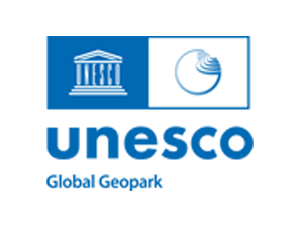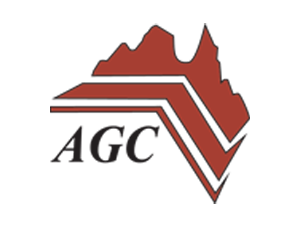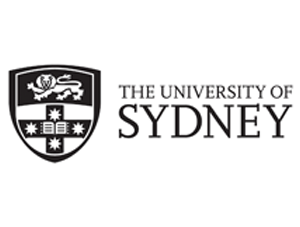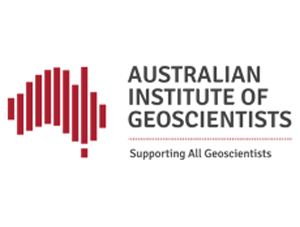SPEAKERS
Dr Jon Hronsky OAM 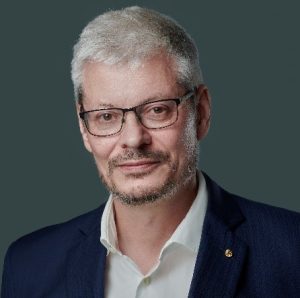
Chair, National Geotourism Strategy, Australian Geoscience Council.
The Australian Geoscience Council’s National Geotourism Strategy: A Key Initiative to Grow the Opportunities for Geoscience in Australia.
Dr Jon Hronsky OAM, is a senior Mining Industry geoscientist but is presenting here today in his role as the current chair of the Australian Geoscience Council’s National Geotourism Strategy, a role he has held since the inception of this strategy by the AGC more than three years ago. He is a former Chair of the AGC and has long had a passionate commitment to the promotion of geoscience to the broader community. Jon is an Adjunct Professor at the University of WA. In 2019, he was awarded the Order of Australia medal for services to the Mining Industry.
Ipuk Fiestiandani Azwar Anas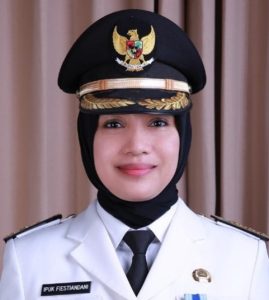
Regent of Banyuwangi, Banyuwangi Regency of East Java, Indonesia.
Ijen UNESCO Global Geopark: Impacts of Volcano Geotourism and Geopark on Economic Development for Banyuwangi Regency.
Ipuk Fiestiandani Azwar Anas is the Regent of Banyuwangi for the 2021-2024 term, having assumed office on February 26, 2021. She was born in Magelang, Central Java, on September 10, 1974. Ipuk Fiestiandani Azwar Anas earned her bachelor’s degree from Universitas Negeri Jakarta and her master’s degree in public policy from Universitas Airlangga. As the Regent of Banyuwangi, Ipuk Fiestiandani Azwar Anas has steered Banyuwangi towards several impressive achievements. Banyuwangi as part of Ijen Geopark has been acknowledged as a member of the UNESCO Global Geopark network. Banyuwangi Airport recognized as a building with the best architecture in the Aga Khan Awards for Architecture 2022. Furthermore, Banyuwangi has successfully maintained its status as the most innovative regency in Indonesia for six consecutive years. Additionally, Banyuwangi secured the top spot for local government performance in 2022. During her tenure, Ipuk Fiestiandani Azwar Anas has earned various individual awards reflecting her dedication to regional development. These awards include the Satyalencana Wirakarya from the President of the Republic of Indonesia for her success in innovating the maritime sector in Banyuwangi and the 'Appreciation of Indonesian Figures' award from Tempo, a national media outlet, for her success in reviving Banyuwangi's tourism post the Covid-19 pandemic.
Mohamad Farid Zaini
Chairman of the Indonesian Geoparks Network, Indonesia.
Indonesian Geoparks Development: Managing Volcano Geotourism Destination to Sustain Local Communities.
Mohamad Farid Zaini is the current Chairman of the Indonesian Geoparks Network. Farid facilitates collaboration among 24 geoparks nationwide. Since 2020, he has brought his expertise to the role of General Manager at the Rinjani-Lombok UNESCO Global Geopark Management Agency, overseeing the integrated development and management of geopark areas in West Nusa Tenggara. Additionally, Farid serves as an Advisory Committee member of the Global Geopark Network, contributing extensively to the global network's initiatives. He also contributes to academia as a lecturer and heads the Innovation and Business Incubator Centre at Hamzanwadi University in East Lombok. Over the past five years, he has tirelessly worked with stakeholders to promote sustainable geotourism in Lombok, emphasizing community empowerment and environmental conservation. Farid's multifaceted roles and passion for geoparks and sustainable development make him a valuable asset to the field, driving forward initiatives that prioritize both regional competitiveness and environmental stewardship.
Professor Mega Fatimah Rosana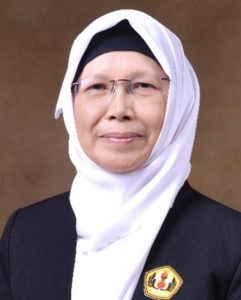
Dean of the Faculty of Engineering Geology, Padjadjaran University in West Java, Indonesia.
Roles of geoscientists in geotourism and geopark development in Indonesia.
Professor Rosana is the Dean of the Faculty of Engineering Geology, Padjadjaran University in West Java of Indonesia since 2021. She is the Chair of the Geopark Expert Board of the Indonesian National Geopark Committee. She is currently a member of the Indonesian Association of Geologist (AIGI), the Society of Economic Geology, the Indonesian Society of Economic Geologist (MGEI) and the Indonesian Geotourism Society (MAGI). Her research interests range from petrology, minerology, geochemistry, hydrotermal studies to remote sensing, environmental conservationm geopark and geotourism.
Dedy Asriady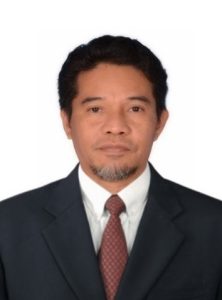
Head of Genung Rijani National Park Office, Lombok, West Nusa Tenggara, Indonesia.
Estimation of the social and economic impacts of geotourism of Gunung Rinjani National Park of Indonesia.
Dedy Asriady is currently the Head of Gunung Rinjani National Park in Lombok, West Nusa Tenggara, Indonesia. Previously, Dedy served as the Deputy Director for National Park Conservtion Technique of Lore Lindu National Park, Evaluation Section of South Sulawesi Nature Conservation Agency, Head of Area II of Bantimurung Bulusaraung National Park. Dedy holds degrees from Hasanuddin University. As Director of the Gunung Rinjani National Park, he always involves the local community in the management of the National Park. Working together to preserve Mount Rinjani also means preserving the culture that surrounds it. Thus, involving many stakeholders in management is important. ‘Rinjaninte, Rinjani Kita’, Rinjani is us, the tagline that he created for the National Park. As a result, protecting Rinjani is not just a duty, but a mandate that must be carried out with full awareness and responsibility. Providing benefits to the surrounding community as well as supporting regional and national development.
H.E Ambassador Dr. Siswo Pramono,
Ambassador to Australia, Republic of Indonesia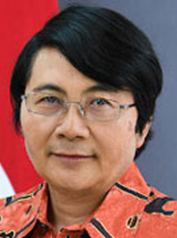
His Excellency Ambassador Dr Siswo Pramono grew up in the south coast region of Tulungagung in East Java. He graduated in law from Airlangga University in Surabaya. He undertook postgraduate studies at Monash University in law and later completed a PhD in political science from the Australian National University. Prior to being posted to Canberra as Indonesia’s Ambassador to Australia and Vanuatu, he was the Head/Director-General of the Policy Analysis and Development Agency at the Ministry of Foreign Affairs. His earlier placements and postings included Deputy Chief of Mission, Indonesian Embassy in Berlin, Germany, Head/Director of the Center for Policy Analysis and Development on Asia-Pacific and Africa Regions, Policy Analysis and Development Agency, Ministry of Foreign Affairs of Indonesia. He was also the Advisor to the Permanent Representation of the Republic of Indonesia to the Organisation for the Prohibition of Chemical Weapons in The Hague. Ambassador Pramono presented his credentials to the Governor-General of Australia in Canberra on 8 December 2021.
Professor Phil McManus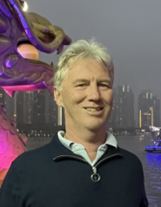
School of Geosciences, The University of Sydney, Sydney, Australia.
The imperative of building sustainable tourism in regional and remote Australia: Cultural landscapes of volcanic tourism.
Phil is a Professor of Urban and Environmental Geography at the University of Sydney. His research interests include sustainable cities, regional development, Chinese tourism, urban infrastructure, and human-animal relations, particularly the thoroughbred breeding and horseracing industry. He is the author/co-author/co-editor of six books, including Chinese Tourism in Australia: Koalas, Selfies and Red Dresses (forthcoming 2024: Palgrave MacMillan) and Rural Revival? Place marketing, tree change and rural migration in Australia (2011, Ashgate). He has published over 100 journal articles, book chapters and reference works and has supervised 16 PhD students to completion as the Primary Supervisor. He serves on the Editorial Boards of Australian Geographer, Sustainability and Oxford Open Infrastructure & Health. Phil was President of the Institute of Australian Geographers (IAG) 2012-2014, President of the Geographical Society of NSW (GSNSW) 2014-2018, Head of School of Geosciences at The University of Sydney 2015-2019 and is currently a Vice President of the International Geographical Union (IGU) for the term 2022-2026.
Dr Patricia Erfurt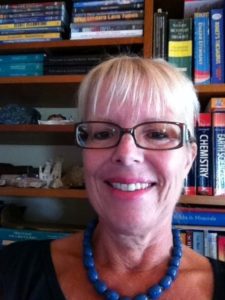
Research Scientist, Geotourism Australia.
Destinations and current development of volcanic geotourism in Australia.
Patricia Erfurt studied geology, geography and soil science at the University of New England, New South Wales, Australia. She received her Ph.D. from James Cook University (JCU) in Queensland, Australia for the subject of natural hot springs and their role in health, wellness and recreation. Since retirement from university teaching, she has worked as a research scientist and consultant at Geotourism Australia with a special focus on risk prevention and risk management in active volcanic and hydrothermal environments. Her research interests include exploring volcanic destinations and hot spring locations with an emphasis on sustainable management and conservation of endangered sites. She spends much of her time publishing research findings and has authored and co-authored books, chapters and articles about volcano tourism, hot spring tourism and geotourism. She actively promotes the concept of sustainable geotourism, assists with planning and establishing geotrails and works as advisor for the conservation of natural and cultural resources and their geoheritage.
Sasha Morriss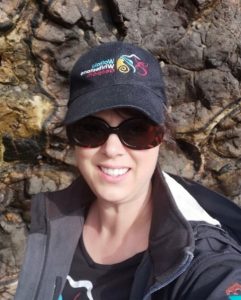
Geoeducator and Geoscientist, Waitaki Whitestone UNESCO Global Geopark, New Zealand.
Geotourism in the Waitaki Whitestone UNESCO Global Geopark, New Zealand.
Sasha Morriss is the geoscientist for the Waitaki Whitestone UNESCO Global Geopark in New Zealand and leads education outreach. She has been in her position for almost five years and played a pivotal role in the UNESCO Global Geopark accreditation process (2023). This included developing content concerning the geological heritage of the Geopark. Sasha has a wide liaison role which includes delivering educational programs to schools and community groups, liaising with the Council, conservation agencies and the many other stakeholders involved with the Geopark. Sashas previous experience includes groundwater Resource Management (NZ) and roles within town planning (UK). She earned her MSc and BSc in Geology from the University of Otago New Zealand. Sasha enjoys making scientific concepts accessible and relevant to locals and visitors.
Russell Boswell, Manager
Savannah Guides, Cairns, Queensland, Australia.
Vulcanism and Tourism in Tropical North Queensland.
Russell Boswell is a regional tourism development expert. He has owned and operated tour companies, created numerous ecotourism experiences and mentored hundreds of tourism businesses across Australia. He has worked in tourism development projects in the Pacific, Indonesia, and China. Russell delivers programs in destination planning, storytelling, and business development. Russell also manages Savannah Guides, a not-for-profit organisation delivering professional development for Tour Guides, including training, field schools and accreditation. Savannah Guides operates the EcoGuide program, benchmarking high standard tour guiding in Australia and internationally. Based in Cairns, Tropical North Queensland, Russell sits on two Working Groups as a part of Australia’s National Geotourism Strategy. He is a graduate of the University of Sydney.
Mark Williams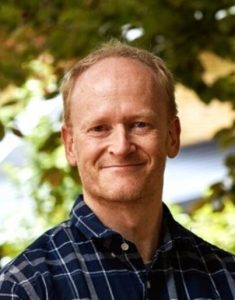
Geoscientist & Lecturer in Physical Geography and Spatial Science at the University of Tasmania, Hobart, Tasmania, Australia.
Harnessing digital technology for volcanic geotourism and opportunities for Geoscientists.
Mark is a Geoscientist and Lecturer in Physical Geography and Spatial Science at the University of Tasmania. He serves as a co-leader of TAARN, a dedicated research group focused on Geoconservation in Tasmania and Australia. Before joining the University of Tasmania in 2017, Mark was an IT professional working in government and industry sectors in Australia and abroad across a variety of roles. Professionally, Mark is actively engaged with the industry as a geoheritage specialist, practitioner, and consultant, concentrating on geoheritage protection, sustainable geotourism, and geoeducation. As part of this professional engagement, he chairs a working group on Digital Technologies for Australia’s National Geotourism Strategy of the Australian Geoscience Council.
SPEAKERS
Dr Jon Hronsky OAM
Chair, National Geotourism Strategy, Australian Geoscience Council.
The Australian Geoscience Council’s National Geotourism Strategy: A Key Initiative to Grow the Opportunities for Geoscience in Australia.
Dr Jon Hronsky OAM, is a senior Mining Industry geoscientist but is presenting here today in his role as the current chair of the Australian Geoscience Council’s National Geotourism Strategy, a role he has held since the inception of this strategy by the AGC more than three years ago. He is a former Chair of the AGC and has long had a passionate commitment to the promotion of geoscience to the broader community. Jon is an Adjunct Professor at the University of WA. In 2019, he was awarded the Order of Australia medal for services to the Mining Industry.
H.E Ambassador Dr. Siswo Pramono,
Ambassador to Australia, Republic of Indonesia
His Excellency Ambassador Dr Siswo Pramono grew up in the south coast region of Tulungagung in East Java. He graduated in law from Airlangga University in Surabaya. He undertook postgraduate studies at Monash University in law and later completed a PhD in political science from the Australian National University. Prior to being posted to Canberra as Indonesia’s Ambassador to Australia and Vanuatu, he was the Head/Director-General of the Policy Analysis and Development Agency at the Ministry of Foreign Affairs. His earlier placements and postings included Deputy Chief of Mission, Indonesian Embassy in Berlin, Germany, Head/Director of the Center for Policy Analysis and Development on Asia-Pacific and Africa Regions, Policy Analysis and Development Agency, Ministry of Foreign Affairs of Indonesia. He was also the Advisor to the Permanent Representation of the Republic of Indonesia to the Organisation for the Prohibition of Chemical Weapons in The Hague. Ambassador Pramono presented his credentials to the Governor-General of Australia in Canberra on 8 December 2021.
Ipuk Fiestiandani Azwar Anas
Regent of Banyuwangi, Banyuwangi Regency of East Java, Indonesia.
Ijen UNESCO Global Geopark: Impacts of Volcano Geotourism and Geopark on Economic Development for Banyuwangi Regency.
Ipuk Fiestiandani Azwar Anas is the Regent of Banyuwangi for the 2021-2024 term, having assumed office on February 26, 2021. She was born in Magelang, Central Java, on September 10, 1974. Ipuk Fiestiandani Azwar Anas earned her bachelor’s degree from Universitas Negeri Jakarta and her master’s degree in public policy from Universitas Airlangga. As the Regent of Banyuwangi, Ipuk Fiestiandani Azwar Anas has steered Banyuwangi towards several impressive achievements. Banyuwangi as part of Ijen Geopark has been acknowledged as a member of the UNESCO Global Geopark network. Banyuwangi Airport recognized as a building with the best architecture in the Aga Khan Awards for Architecture 2022. Furthermore, Banyuwangi has successfully maintained its status as the most innovative regency in Indonesia for six consecutive years. Additionally, Banyuwangi secured the top spot for local government performance in 2022. During her tenure, Ipuk Fiestiandani Azwar Anas has earned various individual awards reflecting her dedication to regional development. These awards include the Satyalencana Wirakarya from the President of the Republic of Indonesia for her success in innovating the maritime sector in Banyuwangi and the 'Appreciation of Indonesian Figures' award from Tempo, a national media outlet, for her success in reviving Banyuwangi's tourism post the Covid-19 pandemic.
Mohamad Farid Zaini
Chairman of the Indonesian Geoparks Network, Indonesia.
Indonesian Geoparks Development: Managing Volcano Geotourism Destination to Sustain Local Communities.
Mohamad Farid Zaini is the current Chairman of the Indonesian Geoparks Network. Farid facilitates collaboration among 24 geoparks nationwide. Since 2020, he has brought his expertise to the role of General Manager at the Rinjani-Lombok UNESCO Global Geopark Management Agency, overseeing the integrated development and management of geopark areas in West Nusa Tenggara. Additionally, Farid serves as an Advisory Committee member of the Global Geopark Network, contributing extensively to the global network's initiatives. He also contributes to academia as a lecturer and heads the Innovation and Business Incubator Centre at Hamzanwadi University in East Lombok. Over the past five years, he has tirelessly worked with stakeholders to promote sustainable geotourism in Lombok, emphasizing community empowerment and environmental conservation. Farid's multifaceted roles and passion for geoparks and sustainable development make him a valuable asset to the field, driving forward initiatives that prioritize both regional competitiveness and environmental stewardship.
Professor Mega Fatimah Rosana
Dean of the Faculty of Engineering Geology, Padjadjaran University in West Java, Indonesia.
Roles of geoscientists in geotourism and geopark development in Indonesia.
Professor Rosana is the Dean of the Faculty of Engineering Geology, Padjadjaran University in West Java of Indonesia since 2021. She is the Chair of the Geopark Expert Board of the Indonesian National Geopark Committee. She is currently a member of the Indonesian Association of Geologist (AIGI), the Society of Economic Geology, the Indonesian Society of Economic Geologist (MGEI) and the Indonesian Geotourism Society (MAGI). Her research interests range from petrology, minerology, geochemistry, hydrotermal studies to remote sensing, environmental conservationm geopark and geotourism.
Dedy Asriady
Head of Genung Rijani National Park Office, Lombok, West Nusa Tenggara, Indonesia.
Estimation of the social and economic impacts of geotourism of Gunung Rinjani National Park of Indonesia.
Dedy Asriady is currently the Head of Gunung Rinjani National Park in Lombok, West Nusa Tenggara, Indonesia. Previously, Dedy served as the Deputy Director for National Park Conservtion Technique of Lore Lindu National Park, Evaluation Section of South Sulawesi Nature Conservation Agency, Head of Area II of Bantimurung Bulusaraung National Park. Dedy holds degrees from Hasanuddin University. As Director of the Gunung Rinjani National Park, he always involves the local community in the management of the National Park. Working together to preserve Mount Rinjani also means preserving the culture that surrounds it. Thus, involving many stakeholders in management is important. ‘Rinjaninte, Rinjani Kita’, Rinjani is us, the tagline that he created for the National Park. As a result, protecting Rinjani is not just a duty, but a mandate that must be carried out with full awareness and responsibility. Providing benefits to the surrounding community as well as supporting regional and national development.
Professor Phil McManus
School of Geosciences, The University of Sydney, Sydney, Australia.
The imperative of building sustainable tourism in regional and remote Australia: Cultural landscapes of volcanic tourism.
Phil is a Professor of Urban and Environmental Geography at the University of Sydney. His research interests include sustainable cities, regional development, Chinese tourism, urban infrastructure, and human-animal relations, particularly the thoroughbred breeding and horseracing industry. He is the author/co-author/co-editor of six books, including Chinese Tourism in Australia: Koalas, Selfies and Red Dresses (forthcoming 2024: Palgrave MacMillan) and Rural Revival? Place marketing, tree change and rural migration in Australia (2011, Ashgate). He has published over 100 journal articles, book chapters and reference works and has supervised 16 PhD students to completion as the Primary Supervisor. He serves on the Editorial Boards of Australian Geographer, Sustainability and Oxford Open Infrastructure & Health. Phil was President of the Institute of Australian Geographers (IAG) 2012-2014, President of the Geographical Society of NSW (GSNSW) 2014-2018, Head of School of Geosciences at The University of Sydney 2015-2019 and is currently a Vice President of the International Geographical Union (IGU) for the term 2022-2026.
Patricia Erfurt
Research Scientist, Geotourism Australia.
Destinations and current development of volcanic geotourism in Australia.
Patricia Erfurt studied geology, geography and soil science at the University of New England, New South Wales, Australia. She received her Ph.D. from James Cook University (JCU) in Queensland, Australia for the subject of natural hot springs and their role in health, wellness and recreation. Since retirement from university teaching, she has worked as a research scientist and consultant at Geotourism Australia with a special focus on risk prevention and risk management in active volcanic and hydrothermal environments. Her research interests include exploring volcanic destinations and hot spring locations with an emphasis on sustainable management and conservation of endangered sites. She spends much of her time publishing research findings and has authored and co-authored books, chapters and articles about volcano tourism, hot spring tourism and geotourism. She actively promotes the concept of sustainable geotourism, assists with planning and establishing geotrails and works as advisor for the conservation of natural and cultural resources and their geoheritage.
Sasha Morriss
Geoeducator and Geoscientist, Waitaki Whitestone UNESCO Global Geopark, New Zealand.
Geotourism in the Waitaki Whitestone UNESCO Global Geopark, New Zealand.
Sasha Morriss is the geoscientist for the Waitaki Whitestone UNESCO Global Geopark in New Zealand and leads education outreach. She has been in her position for almost five years and played a pivotal role in the UNESCO Global Geopark accreditation process (2023). This included developing content concerning the geological heritage of the Geopark. Sasha has a wide liaison role which includes delivering educational programs to schools and community groups, liaising with the Council, conservation agencies and the many other stakeholders involved with the Geopark. Sashas previous experience includes groundwater Resource Management (NZ) and roles within town planning (UK). She earned her MSc and BSc in Geology from the University of Otago New Zealand. Sasha enjoys making scientific concepts accessible and relevant to locals and visitors.
Russell Boswell, Manager
Savannah Guides, Cairns, Queensland, Australia.
Vulcanism and Tourism in Tropical North Queensland.
Russell Boswell is a regional tourism development expert. He has owned and operated tour companies, created numerous ecotourism experiences and mentored hundreds of tourism businesses across Australia. He has worked in tourism development projects in the Pacific, Indonesia, and China. Russell delivers programs in destination planning, storytelling, and business development. Russell also manages Savannah Guides, a not-for-profit organisation delivering professional development for Tour Guides, including training, field schools and accreditation. Savannah Guides operates the EcoGuide program, benchmarking high standard tour guiding in Australia and internationally. Based in Cairns, Tropical North Queensland, Russell sits on two Working Groups as a part of Australia’s National Geotourism Strategy. He is a graduate of the University of Sydney.
Mark Williams
Geoscientist & Lecturer in Physical Geography and Spatial Science at the University of Tasmania, Hobart, Tasmania, Australia.
Harnessing digital technology for volcanic geotourism and opportunities for Geoscientists.
Mark is a Geoscientist and Lecturer in Physical Geography and Spatial Science at the University of Tasmania. He serves as a co-leader of TAARN, a dedicated research group focused on Geoconservation in Tasmania and Australia. Before joining the University of Tasmania in 2017, Mark was an IT professional working in government and industry sectors in Australia and abroad across a variety of roles. Professionally, Mark is actively engaged with the industry as a geoheritage specialist, practitioner, and consultant, concentrating on geoheritage protection, sustainable geotourism, and geoeducation. As part of this professional engagement, he chairs a working group on Digital Technologies for Australia’s National Geotourism Strategy of the Australian Geoscience Council.


